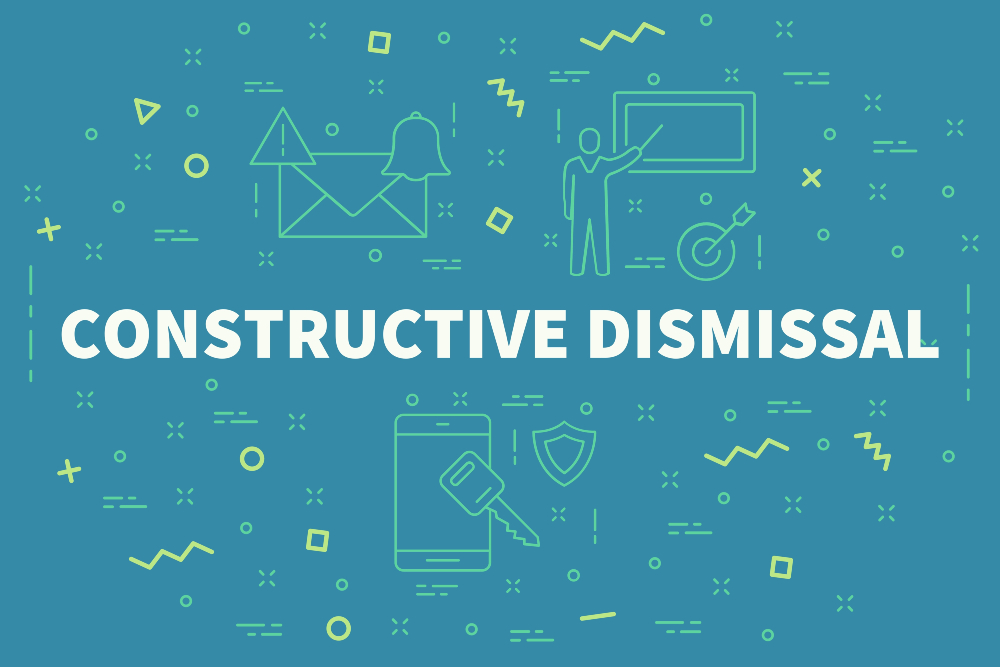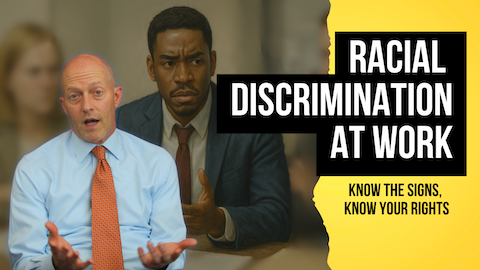Constructive discharge is a concept that emerges when the weight of unbearable working conditions forces an employee to make the difficult decision to resign. Though resignation is typically seen as a voluntary act, constructive discharge recognizes situations where the circumstances become so intolerable that leaving becomes the only viable option.
It is important to consult with an employment law attorney or seek legal advice specific to your jurisdiction to understand how constructive discharge is interpreted and applied in your particular case. An employment law attorney with The Spiggle Law Firm can ensure that you understand your rights, as well as conduct an independent investigation into your claim and advocate for you.
What Is Constructive Discharge?
Constructive discharge refers to a situation in employment law where an employee resigns or quits their job due to intolerable working conditions created by the employer. While the employee technically chooses to leave, the resignation is considered involuntary because the working conditions have become so difficult or hostile that a reasonable person would feel compelled to quit.
When an employee successfully proves constructive discharge, it is treated as if the employer had wrongfully terminated the employee. This may entitle the employee to certain legal remedies and benefits, such as unemployment compensation or the ability to pursue legal claims for wrongful termination.
Examples of Constructive Discharge
Constructive discharge can manifest in various forms, and it is crucial to recognize the indicators. Some common scenarios that may lead to a finding of constructive discharge include:
Harassment and Discrimination
When an employee faces persistent harassment, discrimination, or retaliation based on protected characteristics such as race, gender, age, religion, or disability, it can create an intolerable work environment. If an employer fails to address such issues adequately, the affected employee may have grounds for constructive discharge.
Demotion or Reduction in Benefits
Significant changes in an employee’s terms of employment, such as demotion without justification or substantial reductions in pay, benefits, or responsibilities, can be considered constructive discharge if they render the working conditions unreasonably unfavorable.
Hostile Work Environment
An excessively hostile work environment characterized by severe verbal abuse, threats, or physical violence can make the continuation of employment impossible. If the employer fails to address such behavior, it may also lead to constructive discharge.
How To Claim Constructive Discharge
Under Virginia state laws, employees pursuing a constructive discharge claim face a formidable burden of proof. To establish a claim of constructive discharge, the employee typically needs to demonstrate the following:
Unreasonable Working Conditions
The working conditions must be objectively intolerable, making it impossible for the employee to continue working. Examples include harassment, discrimination, retaliation, severe reduction in salary or benefits, demotion, or dangerous work conditions.
Employer Knowledge
The employer must be aware of the problematic conditions, either directly or indirectly. This could involve situations where the employee has reported the issues to the employer but the employer has failed to address or rectify them.
Employer Intent or Negligence
The employer’s actions or lack of action must also be the cause of the intolerable conditions. It may involve intentional acts by the employer to force the employee to resign, or it may arise from the employer’s failure to respond appropriately to the reported issues.
Schedule a Free Case Review With an Employment Law Attorney
The journey of a constructively discharged employee is fraught with challenges, but it is not without hope. Remedies such as back pay, compensatory damages, and injunctive relief can offer solace and restitution.
Employees pursuing a constructive discharge claim generally face a higher burden of proof compared to claims based on direct termination or discrimination. The Spiggle Law Firm team of employment law attorneys in Virginia can help you understand the specific requirements and strategies for pursuing such claims effectively. Call (202) 449-8527 or submit a completed contact form to schedule a free case review today.





